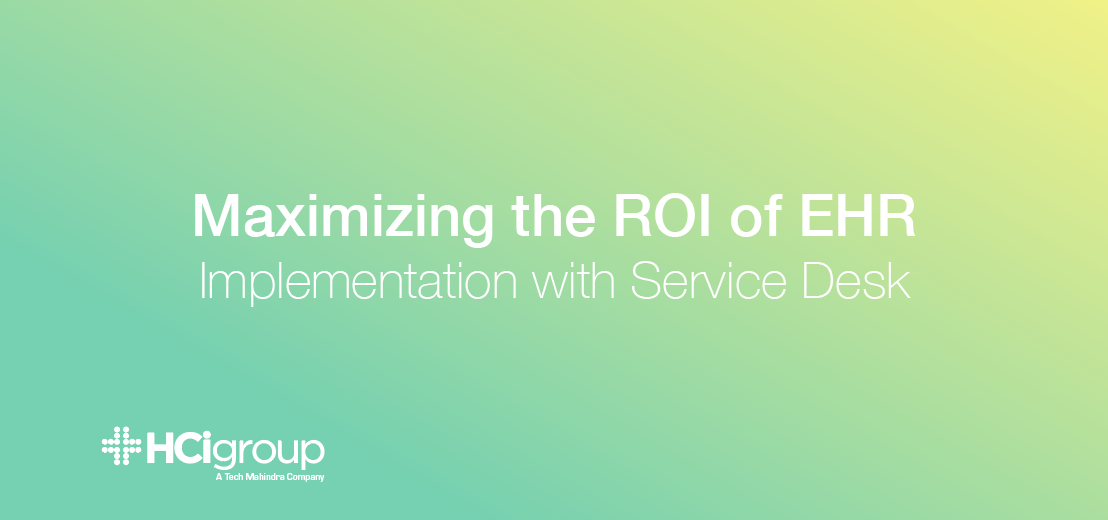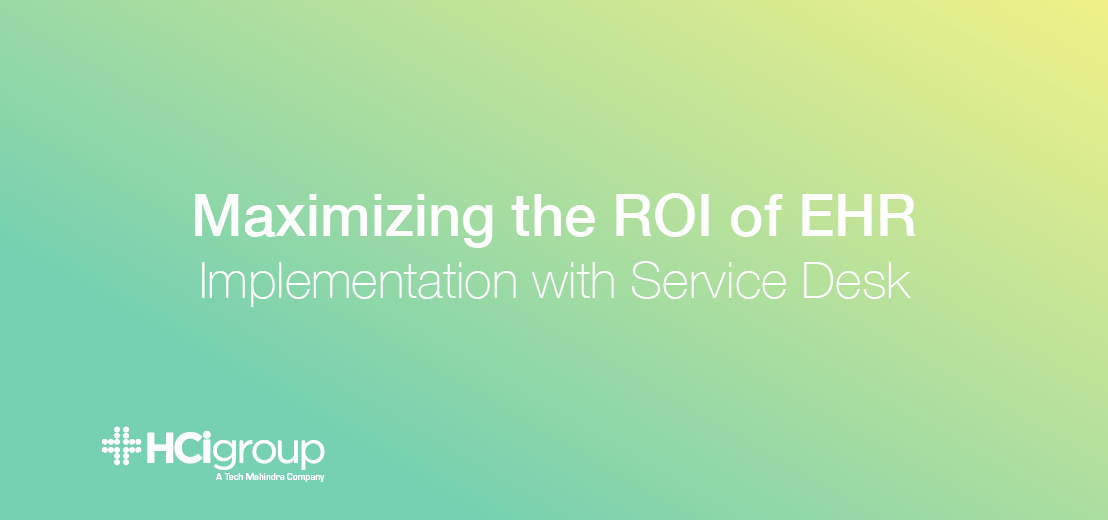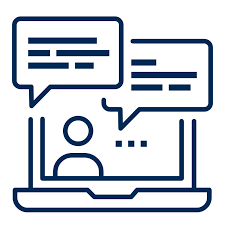Maximizing The ROI Of EHR Implementation With Clinical Service Desk


When a health system has made the (wise) decision to opt for an integrated EHR system to maximize efficiency, operational performance, and care capacity, it’s not enough to simply push through efforts with an assumption that the benefits will naturally follow. Rather, we’ve seen that the best laid plans never really come to fruition unless project sponsors account for the whole lifecycle of an EHR implementation. That doesn’t end with Go-Live or sign off, but extends to the months and even years beyond roll-out. Until a new EHR system is humming along and gaining traction with the optimal workflows, the ROI -- financial and otherwise -- will continue to be a mirage. Including a Clinical Service Desk into your health organization’s implementation plan will go a long way in helping you realize those benefits sooner than later.
What Is A Clinical Service Desk?
Think of this resource as a continuation of Go-Live Support. Many EHR project teams do a great job stacking the deck at the onset of the roll-out period:
- Ensuring key stakeholders are abreast of critical milestones and united to make them happen as planned;
- Having trainers or super users circulating the floor and easily accessible to answer questions and clarify workflow;
- Making sure technical support is readily available and communication channels are open.
But as quickly as a week after the official implementation timeline, that beefed up support often disappears completely. End users are grappling with fully resumed schedules while still adjusting to a new tool, and this is a critical time for reinforcing best practices and overcoming gridlock. Otherwise, workarounds take hold or processes are simply skipped, resulting in a backlog of records or data held up in transit.
A Clinical Service Desk is a continuation of the types of resources that make Go-Live such a successful period, allowing healthcare organizations to continue operations while a dedicated team handles questions or incidents pertaining to the new EHR system. This may include ticket tracking and resolution, re-training, workflow revisions, and logging change requests for eventual updates to the system.
Realize The Full Potential Of Your EHR Investment With A Clinical Service Desk
Without well-defined workflows and enforceable best practices, any EHR System -- be it Epic, Cerner, or NextGen -- becomes a mediocre investment and a behemoth to manage from an IT and security standpoint. The value of an Electronic Health Record system is often found in leveraging the modules and value-adds that optimize clinic flow, patient throughput, charge capture, and other key metrics that add up to cost efficiency and better patient outcomes.
But you’ll be hard pressed to see those flashy sales promises come to fruition if you don’t have a Clinical Service Desk to continue the hand-holding support for end users and organizational leadership, especially given that optimal workflows will be iterative and in progress for a while. The wisest clients are anticipating this longtail pay off, and will make the sound investment in a healthcare IT partner who can provide tailored support to your physicians and support staff.
Old Habits Die Hard, So Bring In Fresh Support For A Fresh System
Change is hard, but change within an organization like a large, complex health system is harder. There is a lot of feet dragging and harkening back to the way it used to be, even if there is no question that the old way was suboptimal. Because the success of EHR implementation is largely dependent on a willingness to embrace the new and push past the grumbling, we can’t speak highly enough to the value of bringing in a team of Clinical Service Desk Specialists from outside your organization to help usher in the new era of EHR bliss.

These resources become well-versed in how your organization runs and what the goals are of the EHR efforts overall, but they’re not entrenched in the politics or culture that could make it difficult to be the messenger or listening ear when issues arise, especially if there is resistance to the introduction of new technology (not uncommon in any industry, honestly). Clinical Service Desk professionals can sift through the frustrations and grievances with decorum, focusing on solutions and escalating veritable issues to the right vendors as needed. This also alleviates additional pressure on internal IT resources within your health system, and gives them the support they too need to acclimate to the new (big) kid on the block.
Identify Issues Real-Time For Prompt Remediation
One of the major benefits of continued support for EHR implementations -- or any new healthcare technology, for that matter -- is the ability to find patterns of issues as they arise. This allows project sponsors to revisit assumptions and alter workflows as needed to quickly overcome barriers to sustained progress. The documentation obtained and tracked by Clinical Service Desks makes it possible to promptly escalate tickets with third-party EHR vendors if the issue is configuration oriented, or to make swift decisions at the health system level (such as an applications oversight committee) if processes must be reconsidered and training repeated.
Neither scenario is ideal, but the last thing you want to encounter is a whammy of this magnitude without the support of a team to help you make sense of the chaos...and keep the angry villagers at bay.
Finish Your EHR Implementation Strong
There’s a lot to consider when rolling out a new EHR system, but it’s worth the blood, sweat, and tears to implement a tool that will empower your providers to do their jobs well, to contain costs, and to bolster processes for efficiency. But the execution is everything, and opting for a Clinical Service Desk as a key element in your EHR implementation plan is a great way to balance the temporary burden and position yourself for long-term success.
